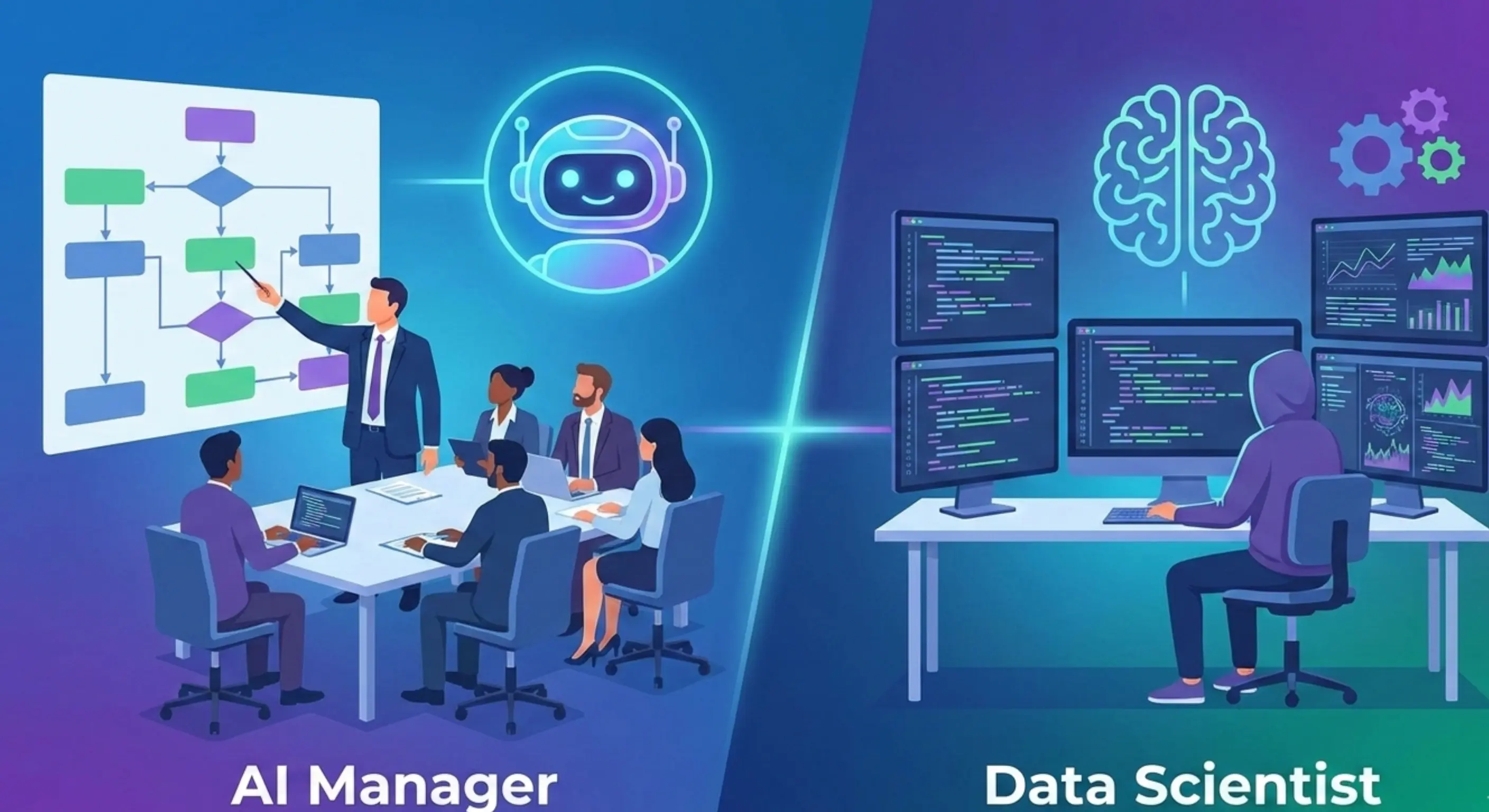
In today’s rapidly evolving tech landscape, training to become AI manager specialists is not just a trend—it's a critical step toward future-proofing your career and business. As organizations integrate artificial intelligence into core operations, the need for leaders who understand both the technical and strategic implications of AI is skyrocketing.
This blog explores why AI manager roles are vital, how specialists can transition into leadership, and where to get the right AI manager training—including specialized hubs like AI manager training Berlin and AI training Berlin.
The Rise of AI in Business and Leadership
Artificial Intelligence is no longer confined to data labs or research departments. From marketing automation and supply chain optimization to HR decision-making, AI in business leadership is becoming central to strategic growth. The future belongs to leaders who can manage AI projects, ensure ethical deployment, and bridge the gap between data scientists and executives.
AI for managers isn’t about coding; it's about vision, execution, and alignment with organizational goals.
Who Are AI Manager Specialists?
An AI Manager Specialist blends deep technical expertise with business acumen. Unlike traditional AI specialists who may focus solely on model development or data analysis, an AI manager oversees projects end-to-end. They translate business needs into AI solutions, manage cross-functional teams, ensure ethical compliance, and track performance metrics.
They serve as the bridge between AI technology and enterprise strategy, making their role crucial in AI-first companies.
Why Train Specialists into AI Managers?
Many organizations are rich in technical talent but lack AI leadership. This is where training to become AI manager professionals becomes essential. By transitioning technical specialists into managerial roles, companies can foster:
- Faster and more effective AI project implementation\
- Improved communication between business and technical teams
- Long-term innovation and agility in changing markets
This strategic move not only boosts individual career paths but also enhances organizational competitiveness.
Essential Skills and Competencies for AI Managers
To succeed in an AI manager role, specialists must expand their toolkit. Key skills include:
1. Leadership and Communication
Managing diverse teams, articulating project vision, and stakeholder negotiation are vital.
2. AI Strategy and Business Alignment
AI managers must align projects with broader business goals, ROI, and KPIs.
3. Ethical and Responsible AI Use
Knowledge of AI ethics, data privacy, and fairness is non-negotiable in today’s regulatory landscape.
4. Cross-functional Collaboration
Working across departments—from IT and marketing to legal and finance—is a daily requirement.
These competencies are often developed through AI leadership training programs or specialized certifications.
Training Pathways and Learning Opportunities
There are several ways to transition into an AI manager role:
-
Online Certifications
Platforms like Coursera, edX, and Stanford Online offer AI manager training programs that cover project leadership, AI implementation, and strategic thinking. -
Corporate Upskilling Programs
Many companies now invest in internal AI training to transform their workforce. These programs often include real-world projects, mentorship, and business-focused AI modules. -
Specialized Local Programs
Cities like Berlin are becoming hotspots for AI manager training. Whether you're exploring AI training Berlin for immersive bootcamps or looking for executive AI programs, the city offers a robust ecosystem for emerging AI leaders. -
MBA with AI Focus
Some universities now offer MBAs that include AI strategy and digital transformation, which are ideal for specialists aiming to take on broader leadership roles.
Challenges in Transitioning to AI Manager Roles
While the path is promising, it's not without challenges:
- Mindset Shift: Moving from technical execution to strategic oversight
- Communication Gap: Learning to speak the language of both engineers and executives
- Keeping Up with Innovation: The AI field changes rapidly, demanding continuous learning
However, with structured AI manager training, these challenges are surmountable—and the rewards are significant.
Success Stories and Real-World Examples
Consider companies like Google or Siemens that have established dedicated AI leadership training tracks. They identify promising engineers and guide them through tailored programs to become AI leaders. In Berlin, several tech startups are partnering with educational platforms to build in-house AI manager specialists, accelerating digital transformation across sectors.
Future Outlook: AI Leadership in the Next 5–10 Years
The future belongs to AI-literate managers who can lead responsibly, adapt quickly, and think systemically. AI leadership won’t just be a niche skill—it will be a core competency across industries. Organizations that start developing these roles today will be tomorrow's innovation leaders.
Whether you're a specialist in data, engineering, or analytics, training to become an AI manager is your ticket to staying relevant and leading the charge.
Conclusion
In a world increasingly driven by intelligent systems, training to become AI manager specialists for future leadership is more than a career move—it’s a strategic imperative. From mastering technical oversight to navigating ethical complexity and team collaboration, today’s specialists have a clear path to leadership.
Whether you're exploring global programs or considering localized options like AI manager training Berlin, the time to start is now.
Ready to lead in the AI era?
Explore top-rated AI training Berlin programs and global certification options to begin your leadership journey today.





